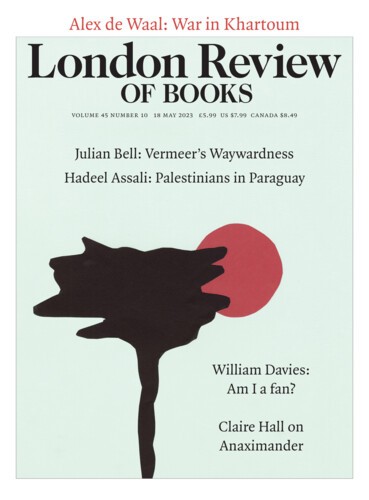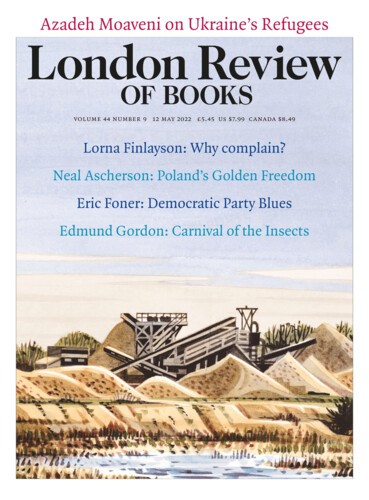We wouldn’t want ‘people to think we were “afraid” of its existence’, Carlos Eduardo Machado, of the Portuguese secret police, wrote in a report on the literary journal Mensagem in the 1960s.
Alexandra Reza
Alexandra Reza teaches comparative literature at Bristol.
If only we were transparent: Lídia Jorge
Alexandra Reza, 18 May 2023
In the late 1990s, according to the historian Stewart Lloyd-Jones, Lisbon ‘transformed out of all recognition’. For a long time it ‘resembled little more than a vast construction site’. In 1998, the year Lídia Jorge completed The Wind Whistling in the Cranes, the city hosted Expo ’98, which brought in eleven million visitors (Portugal’s population
I write in Condé
Alexandra Reza, 12 May 2022
When Maryse Condé was ten, she stood up in front of the guests at her mother’s birthday party to recite a poem she had written. It was late April in Guadeloupe and the ice-cream maker had been churning for hours in preparation. There were bunches of roses everywhere. For weeks, Maryse had woken up early to work on her descriptions of her mother’s quick temper and changing
On 5 September, a group of soldiers led by Colonel Mamady Doumbouya kidnapped Alpha Condé and took him to an undisclosed location. They had deposed him, they said, and dissolved the government. Later they released a video of Condé, slouched on a sofa, looking irritable. Soldiers in full uniform try to get him to say on camera that all is well. The ex-president looks at the camera. Is it the old oppositional spirit that flickers on his face, or just the arrogance of power? It is hard to tell. Condé stays silent, his feet up, shirt untucked, lips pursed.
The electoral commission in Conakry announced on 25 October that the incumbent, Alpha Condé, had won a third term as president of Guinea. Earlier this year, he held a referendum on a change to the country’s constitution that would allow him to disregard a previous two-term limit. His critics have seen this as a constitutional coup d’état and at least fifty people have been killed by state security forces in the attendant protests. The internet and international calls were cut off without warning on the Friday and Saturday before the results were announced. Asked on French television last month if he was turning into the type of autocrat he had opposed as a younger man, Condé said no. It was ‘extraordinary’, he said, that he, of all people, who had fought for 45 years against repressive regimes, should be seen as an ‘anti-democratic dictator’. He avoided the question of whether this term would be his last.
Read anywhere with the London Review of Books app, available now from the App Store for Apple devices, Google Play for Android devices and Amazon for your Kindle Fire.
Sign up to our newsletter
For highlights from the latest issue, our archive and the blog, as well as news, events and exclusive promotions.



